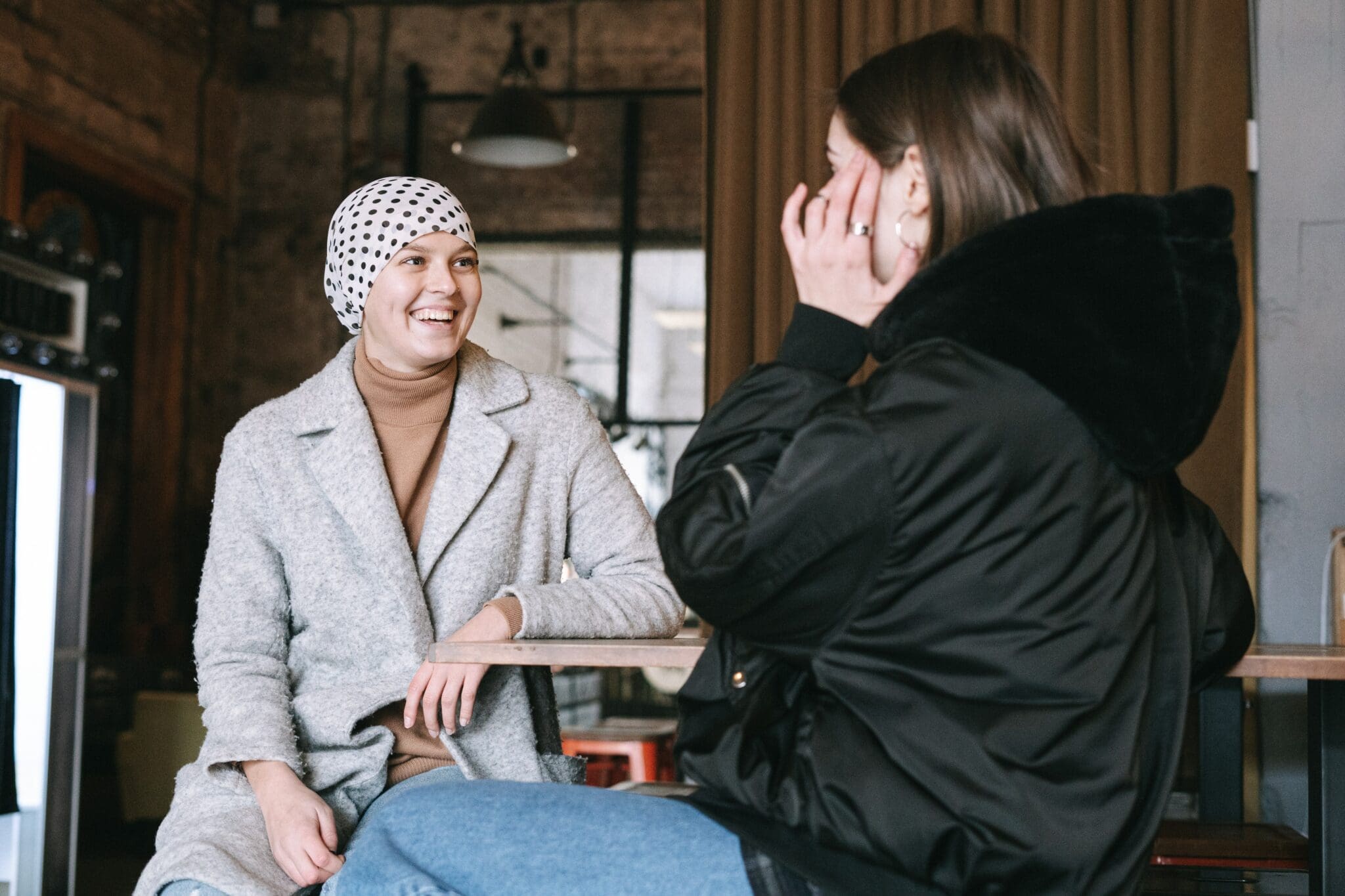
A cancer diagnosis can feel isolating. You’re still the same person you were, but now you have a new perspective on life. Some of your symptoms, like fatigue, or the risk of infection can make socialising feel like hard work. And sometimes, this can be quite worrisome to deal with.
But it doesn’t have to mean the end of your social life. Of course, it can take a while to adjust to your diagnosis. So even when you feel physically well enough to get out and about, you may still be dealing with feelings of anxiety and depression.
Staying connected to your friends is essential when you’re coping with cancer. Planning ahead, making a few adjustments, and connecting to support groups, can help you to keep enjoying your social life.
Multiple studies have shown that strong social relationships are good for our health, so being surrounded by a great support network can be incredibly important when you receive your cancer diagnosis. After all, you may want to escape from thinking or talking about cancer for a while and let things feel ‘normal’ for a few hours.
When you’re undergoing treatment, you might be advised to avoid meeting your friends in person. Treatment can weaken your immune system, and you may not feel like going anywhere. Now’s the time to deploy the online video-calling skills you’ve polished over the past couple of years.
Don’t be afraid to let friends and family know that treatment can be tiring and stressful and that you’ll need to pace yourself, even when meeting online. But if you feel you can handle it, you could start a book or movie club to keep you in touch with the wider world. Otherwise, social media and apps like WhatsApp or Messenger make keeping in touch relatively effortless.
Once you’ve been diagnosed, being spontaneous can be challenging. You may even have to cancel at the last minute, so let your friends know it’s nothing personal. They’ll understand.
Instead of going out, invite friends to visit you. As you learn to live with your diagnosis, you’ll be able to gauge how you respond to treatment and when is the best time for a get-together.
For example, if you feel nauseous for a few days after treatment, avoid seeing people then or use an anti-sickness medication to control it. And if you know that you run out of energy in the afternoon, meet up for brunch instead of dinner. Or, if you’ve planned to go out at night, make sure you rest during the day. Also, if your friends are happy to sit with you during treatment, you’ll have plenty of time for a catch-up.
You may want to adjust your social activities for a while. That could mean swapping your park run for the movies, or a night in the pub for a new hobby.
If you have an unmissable event like a friend’s wedding coming up, plan ahead. Pace yourself ahead of the big day and talk to your doctor about arranging your treatments so they don’t clash with the date.
Whether you go to an in-person group, connect online, or attend a conference, talking to others going through the same experience can be hugely inspiring and rewarding.
Friends and acquaintances you haven’t seen for a while will likely want to check in with you, but remember, you don’t have to make time to see them all. A simple thank you is enough. You could try designating a friend to share information with your wider circle or write an occasional blog post to keep everyone updated.
Your cancer diagnosis might mean that it’s harder to socialise, but it doesn’t mean that you need to stop socialising altogether. Instead, explain the mental and physical impacts to your friends, and you’ll find new ways to enjoy getting together.
Don’t hesitate to contact us at the Follicular Lymphoma Foundation or connect with the global FLF community.